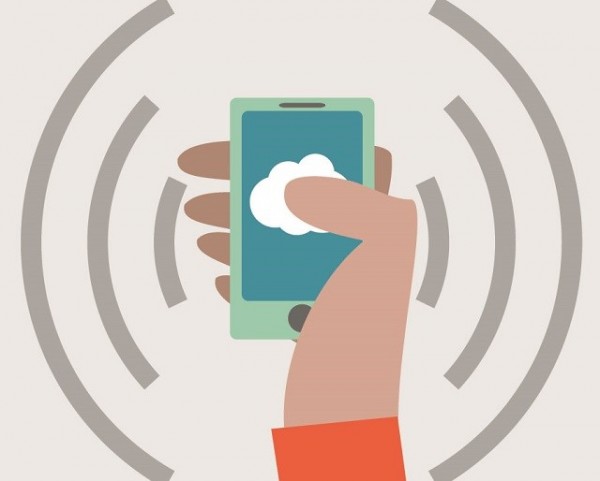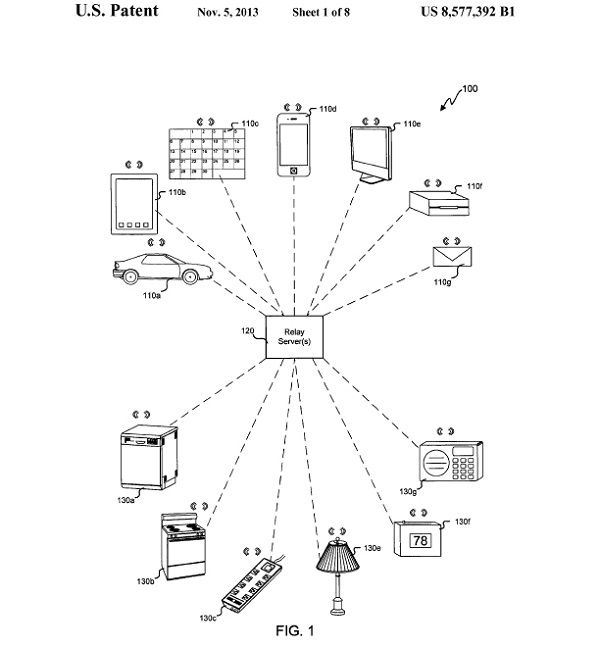Walyou |  |
- How Secure is Your Mobile Device?
- 14 Creepy Faces Food Makes
- Netflix Roulette: Decission Making, Simplified
- Intel and Rockchip Team Up to Make SoCs for Budget Android Tablets
- Apple Might Give Home Automation a Try at WWDC
| How Secure is Your Mobile Device? Posted: 28 May 2014 07:00 AM PDT  While mobile devices add an impressive level of convenience to our daily lives, there are also security concerns surrounding the technology. Are you sure your mobile device is secure? Perhaps not. Consider these quick questions and their solutions. Do You Access Public Networks?While it doesn’t always hurt to connect your mobile device to an unsecured public network — such as in a coffeehouse — it’s important to maintain caution when connecting to public Wi-Fi hotspots. Since you’re sharing your data with the network, others might be able to see any passwords or credit card numbers you enter while connected. Instead, consider setting up a virtual private network (VPN), which allows you to access your private network over a public one, making it difficult for hackers to get a hold of your information. VPNs are often used by large corporations so employees can access the network remotely, but individuals can also set up a personal VPN. This is especially helpful when traveling, since it’s difficult to find a secure network away from home or work. When considering this, it’s also important to remember that some devices automatically connect to Wi-Fi hotspots. Even if you’re not conducting any activity when connected, hackers can access information on your device, like any stored contact information, bank account numbers, or passwords. Make sure to disable these automatic capabilities. Do You Shop Online Over Unsecured Sites?Just like it’s risky business to share information over unsecured networks, it’s also dangerous to enter credit card information on an unsecured site. To shop safely on your smartphone, make sure you see https:// in the URL instead of http://. The “s” means the site is secure. To add an extra level of security, only purchase from sites and apps you know are trustworthy. Never share your credit card information with a site you’ve never heard of. Chances are you can find the same product on a more reputable site that’s more likely to keep your information secure. Do You Research Apps Before Downloading Them?If you don’t validate apps before downloading them, your mobile device is likely less secure than you think. Without knowing it, your apps could come equipped with viruses or spyware that can track your phone usage and bank activities. A team of hackers recently hacked into Snapchat’s files to gain access to names and phone numbers associated with accounts. According to Business Insider, the purpose of the hack was to prove how unsecure data can be on various applications. You can avoid data breaches like this by sticking to trustworthy apps. Do a bit of research and ask yourself these questions before installing the app on your device.
It’s also a good idea to download a quality mobile security app that’ll warn you when you’re about to download a sketchy application. Is Your Device Equipped With Safety Apps?Along with downloading apps that prevent attacks, you can also install apps capable of securing your device after an attack. For instance, if you booby trap your mobile device before someone steals it, they’ll have a harder time accessing and using your data. Start by securing your device with a password. This will slow a lot of thieves down, but it’s often no match for a hacker, so you might consider adding even more security. To do this, you can download safety apps that secure your data when you lose your mobile device. For instance, Find My iPhone allows you to remotely lock your phone and track it with GPS. Prey Anti Theft is another option that helps you find your device, but you can also take pictures remotely so you can see where your device is and possibly snap a picture of the thief. While there are countless benefits of mobile devices, the security concerns have many people worried. However, by following these security precautions, you don’t have to worry as much about losing your valuable data. |
| Posted: 28 May 2014 06:00 AM PDT  Life can get boring, even in this day and age of social media and everything the Internet has to offer. So what does one do to pass the time? Make interesting carvings into fruit, vegetables and other pieces of food and put it on Instagram. The result? Beautiful, although quite creepy as well, as we witness pieces of almonds taking something that looks like a mud bath, or oranges that look like they’re replacing pumpkins on Halloween. One conclusion from all of this? Apples are really scary when you pay them enough attention. AlmondsAppleAvocadoBananaCantaloupeCarefully planned creepy combinationCucumbersGourdGreen PepperLemonOrangeStrawberryAll these wonderful pieces of fruit art are done by Instagram user @frenkfurth.For a bit more fun stuff with food, check out these deliciously geeky foods or if you’re thinking about getting married, these are the best ways to propose with food. |
| Netflix Roulette: Decission Making, Simplified Posted: 28 May 2014 05:00 AM PDT  When was it exactly that TV got so much better than movies? It’s made picking shows to watch so complicated… luckily, that’s one (first world) problem solved, though, Here’s a cool little helper in the form of a webpage called Netflix Roulette. By using a series of filters (genre, actors, directors, and some other fields) plus differentiation between TV shows and movies, Netflix automates the selection process and brings the user something that matches their query at random. Just hit spin and let the web do its thing. Granted, this system needs work, but it’s definitely better than the system Netflix themselves have in place, where there never seems to be anything that users have either not seen or care about. Netflix team, please take notes. Source: Wired Be social! Follow Walyou on Facebook and Twitter, and read more related stories at New Netflix Subscription Plans Allow For Simultaneous Devices and Netflix To Become Available On Cable Boxes.
|
| Intel and Rockchip Team Up to Make SoCs for Budget Android Tablets Posted: 27 May 2014 01:55 PM PDT  The Chinese semiconductor fabricator had already made a name for itself with the numerous chips it created for affordable, yet great performing Android tablets, but the partnership with Intel will definitely take it to new heights. The partnership represents a strategic move for both companies. First of all, Intel wants to get its chips in as many Android devices as possible, while Rockchip is able to put its mobile design experience to great use. The brainchild of this collaboration is represented by three derivatives to the Intel SoFIA family of chipsets. The new SoCs will be used to power low-cost Android tablets and maybe smartphones. Brian Krzanich, Intel CEO, stated that “The strategic agreement with Rockchip is an example of Intel’s commitment to take pragmatic and different approaches to grow our presence in the global mobile market by more quickly delivering a broader portfolio of Intel architecture and communications technology solutions. We are excited to work with Rockchip. With today’s announcement we’ve added yet another derivative to the Intel SoFIA family, and we expect to have them all in market before the middle of 2015. We are moving with velocity to grow Intel’s offerings for the growing global tablet market.” Intel is definitely not cutting down the number of cores, despite the products using these being advertised as low-cost. On top of that, the inclusion of a 3G module on the chip will lead to a new age of Android tablets. On the other hand, Min Li, Rockchip CEO, added that “We are always looking for innovative ways to differentiate our product portfolio, and the first-of-its-kind collaboration with Intel helps us do this. The combination of Intel’s leading architecture and modem technology with our leading mobile design capability brings greater choice to the growing global market for mobile devices in the entry and value segments.” People seem to have mixed feelings about this news. Some claim that Rockchip and Intel are similar to cats and dogs who are now living together, probably suggesting that the two would be better off competing each other rather than collaborating. Others are convinced that Rockchip must have done a lot of lobbying to end up in such a partnership. Not at last, there are people who are anxious to see what low-cost SoCs Intel and Rockchip will reveal next year. Be social! Follow Walyou on Facebook and Twitter, and read more related stories about the Asus Nexus 8 with Intel chipset that might be launched this year, and the SD-card-sized Intel Edison. |
| Apple Might Give Home Automation a Try at WWDC Posted: 27 May 2014 01:20 PM PDT  Google’s acquisition of Nest Labs might have convinced Apple that it needs to come up with something in this field, as well. The Cupertino company’s version of a smart home might be unveiled at the Worldwide Developers Conference next month. A patent filled by Apple in November 2013 suggests that the company is working on a Smart Home system that involves heavy automation of various devices. At the core of the system sit Apple’s mobile devices, respectively the iPhone and the iPad. Unlike other patents that might have been won by the company just to make sure that the competition is not using the technology, this one will have a real world application quite soon, if we are to believe the Financial Times. Apple is reportedly going to showcase the technology behind its home automation system at WWDC 2014. Apple wouldn’t be Apple without a huge dose of arrogance, so the company is already claiming that its yet to be launched Smart Home system is superior to the solutions currently available on the market. Jan Dawson, tech analyst with Jackdaw, is quite confident that Apple might be the one to do things right about home automation: “The reason people want to work with Apple in the first place is it’s all about quality and being officially sanctioned. That’s a very established model at Apple.” The solution that Apple is considering might resemble AirPlay and iBeacon, but focuses on home automation products and appliances. As the patent’s description say, the Smart Home system developed by Apple will be able to control lighting systems, garage-doors openers, music controller, security systems, climate controllers and even kitchen appliances. The way I see it, Apple’s Smart Home system is not that different from the existent home automation solutions, it’s just that it is able to control a greater number of devices than the typical systems. Apple fanboys will rejoice at this news, thinking that iOS 8 has become a software capable of controlling the entire surrounding world. Still, others think that having the fridge, stove, dishwasher or microwave oven connected to the Internet of Things is a bit too much, not to mention unnecessary. By trying to make things more connected we also make some of them more complex than they need to be. Still, it’ll be interesting to see Apple’s approach next week at the WWDC. Be social! Follow Walyou on Facebook and Twitter, and read more related stories about Google’s acquisition of Nest Labs and the PointSwitch home automation devices that relies on hand and eye gestures. |
| You are subscribed to email updates from Walyou To stop receiving these emails, you may unsubscribe now. | Email delivery powered by Google |
| Google Inc., 20 West Kinzie, Chicago IL USA 60610 | |